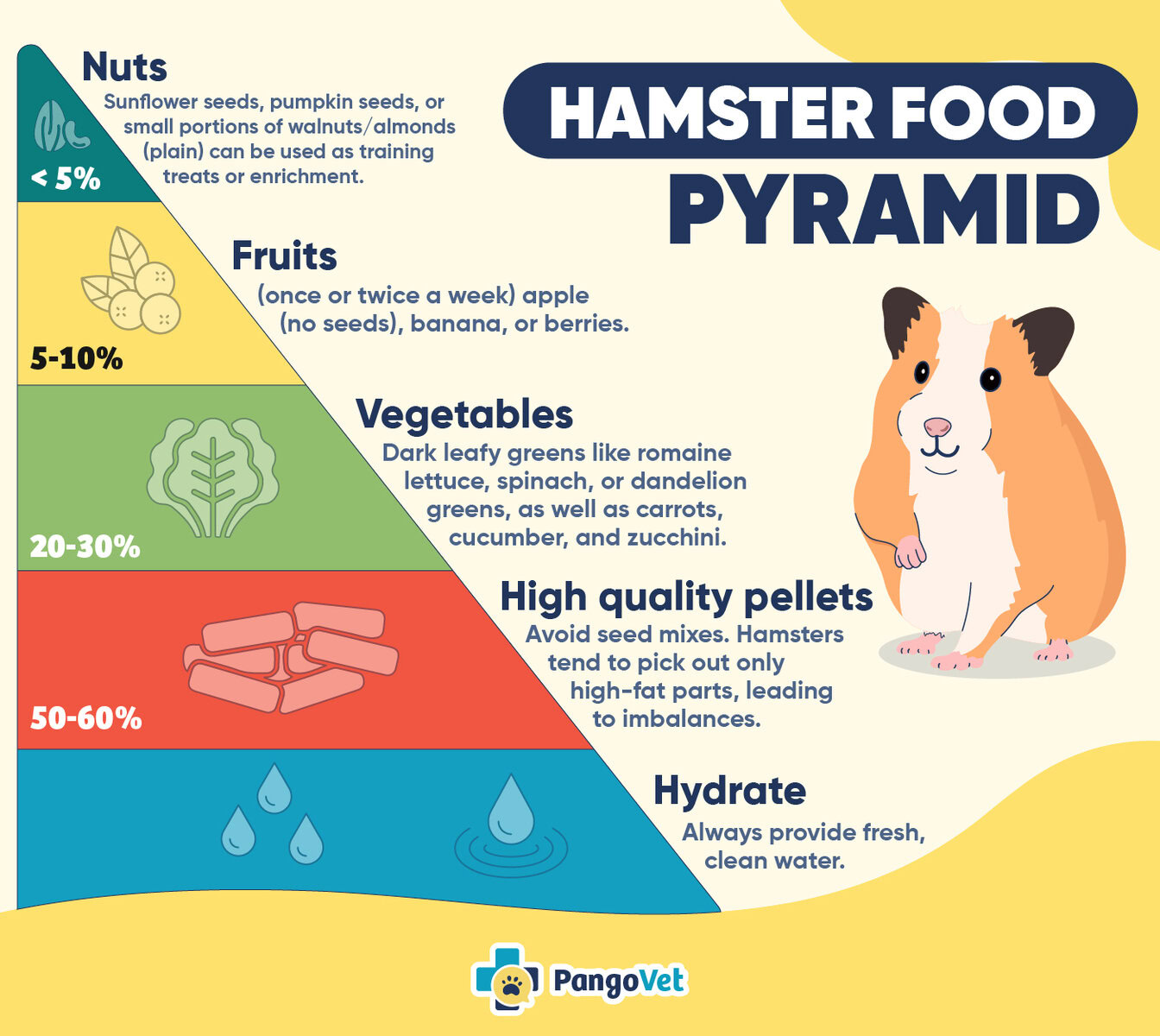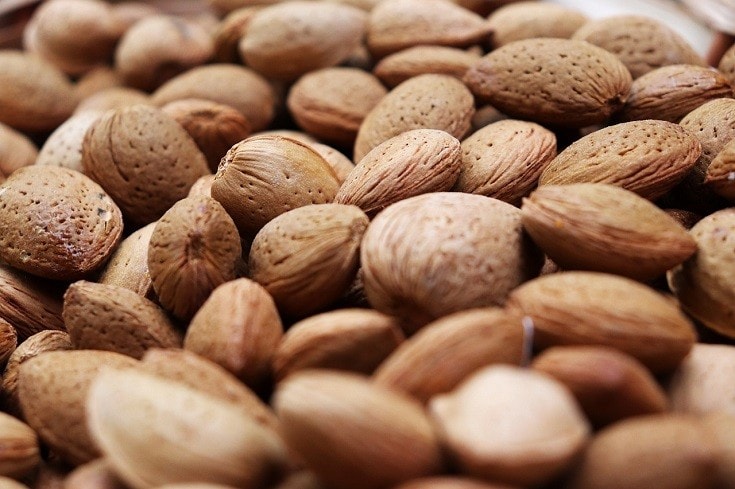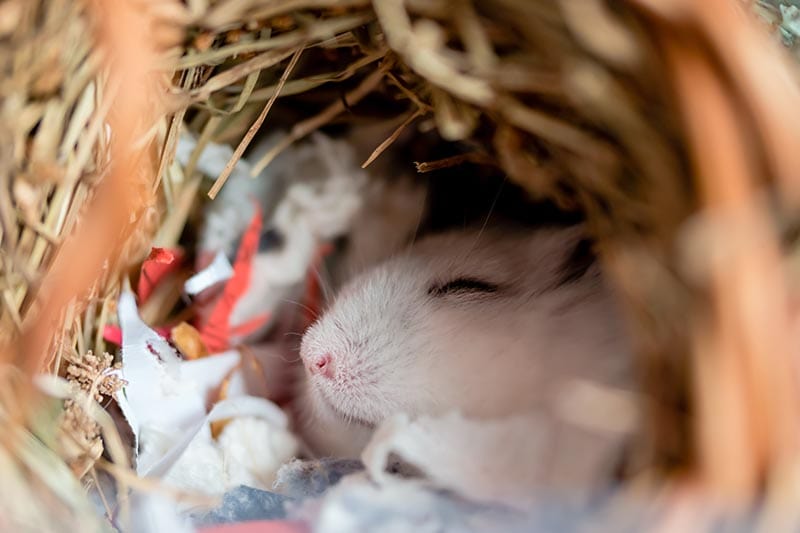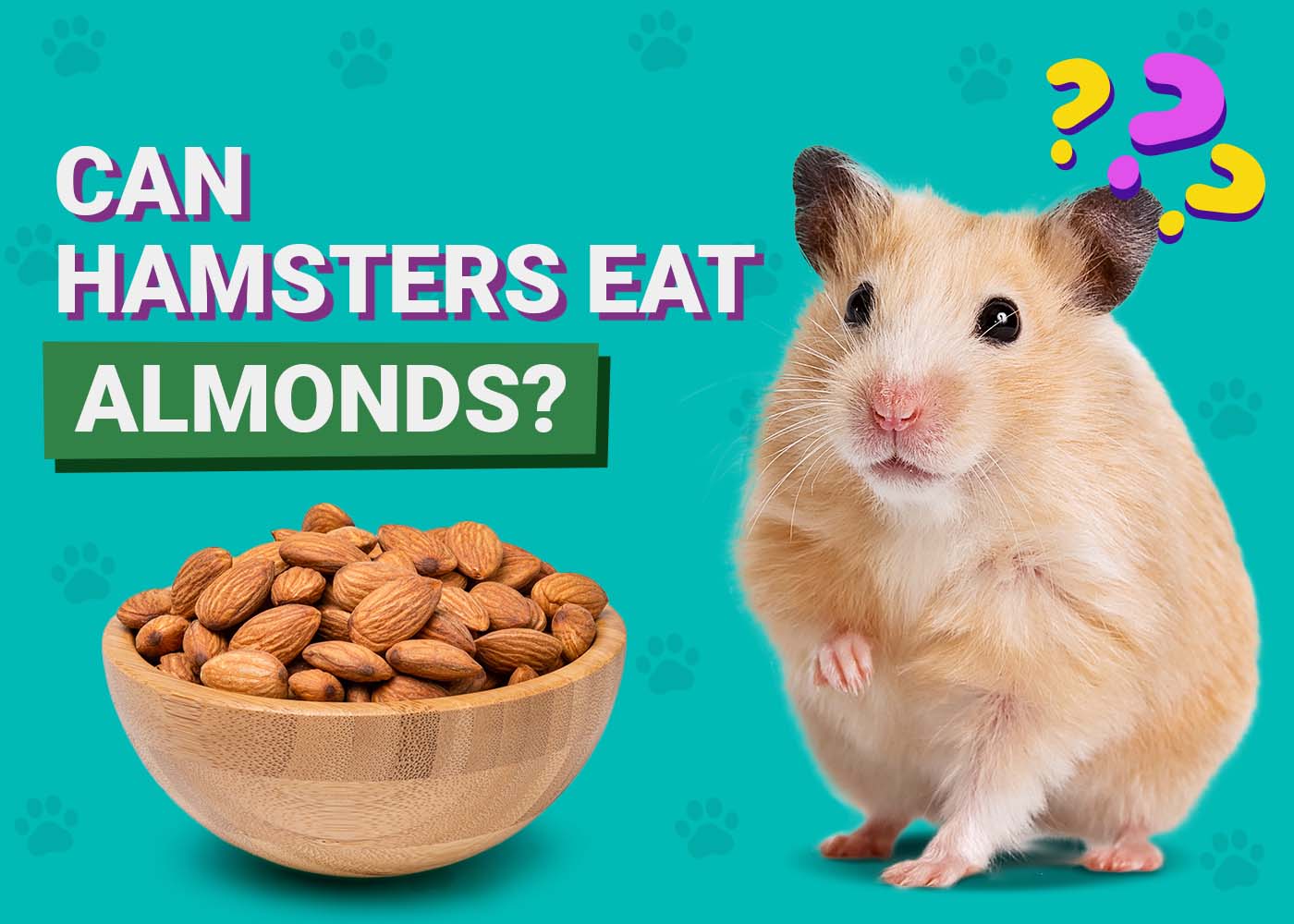VET APPROVED

The information is current and up-to-date in accordance with the latest veterinarian research.
Learn more »Click to Skip Ahead
Your hamster loves seeds and nuts, and almonds are known to be healthy and nutritious snacks for humans. But are almonds safe for your hamster to eat? Can hamsters eat almonds?
The short answer is yes, but there are serious caveats. Sweet almonds are generally safe for hamsters, but bitter and salted almonds must be avoided. Here, we discuss which almonds to look for and how many are okay to serve so they can be tasty and healthy snacks for your hamster, just like they are for you.

A Hamster’s Diet

Did you know that the hamster got its name from the German word “hamstern,” which means “to hoard”? These little critters were well named, given their habit of stuffing their cheek pouches full of food.
Hamsters are native to Romania, Greece, northern China, and other parts of Asia and Eastern Europe but they were originally discovered in Syria, and in 1936, they were brought to North America. The hamster lives in warm and dry areas, such as sand dunes, savannas, and the outskirts of deserts.
These rodents are omnivores and eat various seeds, grains, nuts, insects, vegetables, and fruit. The domestic hamster kept as a pet typically has its nutritional needs met with commercially made pellets specially designed for hamsters. It can also eat an assortment of seeds in combination with small amounts of fruit, vegetables, and herbs as treats.
So, nuts do fit into a typical hamster diet, but let’s have a closer look at almonds.

All About Almonds
Almonds are grown on trees, are related to peaches and apricots, and are 100% dependent on honeybees for pollination. While peanuts are often thought of as the most popular nuts in the world, many people ignore the fact that peanuts are actually legumes, making almonds the most popular true nut and definitely the healthier option.
One single almond typically weighs about 1.2 grams and contains 0.15 g of fiber and 0.254 g of protein, along with vitamins E and B2, copper, manganese, magnesium, antioxidants, and phosphorus.1
Almonds are considered among the healthiest nuts out there, but are they safe and healthy for your hammy?
Benefits of Almonds
- Healthy fats: Almonds are rich in unsaturated fats, which can provide a compact energy source for active hamsters.
- Protein: They contain moderate amounts of plant-based protein, supporting your hamster’s tissue maintenance and growth.
- Vitamin E: Almonds are a good source of vitamin E, an antioxidant that supports immune function and the skin health of your hamster.
- Minerals: They provide trace amounts of magnesium, calcium, and potassium, which support the nerves and functions of the tiny muscles of your hamster.
Almonds are considered among the healthiest nuts out there, but are they safe and healthy for your hammy?
Almonds and Hamsters
Clearly, almonds are amazing little nuts that can have some nutritional benefits for your hamsters. But what are the negatives?

The Downsides of Almonds for Hamsters
Unfortunately, almonds do have a negative side for hamsters. Let’s look at what kind of almonds you need to avoid and why.
Salted Almonds
Some almonds come salted, and while these are okay for people to eat, they are definitely not good for your hamster. Too much salt can cause upset stomach, diarrhea, and dehydration and even cause electrolyte imbalances and kidney issues. Only give your hammy plain almonds with no added ingredients.
Flavored or Seasoned Almonds
Almonds can be flavored with ingredients such as onion or garlic powder. These are a no-go for your little friend, as these natural and artificial seasonings are toxic to hamsters.
Bitter Almonds
Bitter almonds have a natural toxin that breaks down into cyanide by the body when it’s ingested. Cyanide is a deadly poison, and while you would need to eat six to 10 bitter almonds to feel the effects (50 bitter almonds can cause death for the average person), your hamster is tiny, and it wouldn’t take much for it to fall seriously ill or die.
Fat Content
Almonds contain a large amount of healthy fat, but this could still prove to be too much fat for your hammy if you give it almonds on a regular basis. Obviously, this can lead to obesity, which will be damaging to your pet’s overall health.
Choking Hazard
The smaller your hamster is, the larger the chance that the almond could prove to be a choking hazard, particularly if you’re giving it an almond that’s still in the shell. Consider cutting the almond down into tiny pieces before giving it to your hamster, and keep an eye on your pet while it’s eating, especially if this is a treat that you haven’t served before.

A Guide to Feeling Almonds to Your Hamster
If you’ve decided that you would like to start giving your hamster almonds, here are tips for purchasing and preparing these delicious nuts.
- Organic: If you buy organic almonds, you’re ensuring that they will be safer for your hammy. Almonds that are not organic are more likely to contain small amounts of pesticides and chemicals. That said, you should still wash them before serving.
- Shape: Did you know that the shape of the almond can help you determine if it’s a sweet or bitter almond? Any almond that is a little fatter or wider looking than normal or seems to have an inconsistent shape might be a bitter almond. Just be sure to only give your hammy the larger almonds that have that distinctive almond (or teardrop) shape.
- Source: Ensure that sweet almonds are sourced from reputable suppliers and are specifically labeled for human consumption. Do not offer your hamster raw, unlabeled almonds.
- Amount: If you have one of the bigger varieties of hamsters (the Syrian, for example), you shouldn’t give it more than half an almond once or twice a week. Smaller hamsters, such as dwarf hamsters, shouldn’t have more than one-quarter of an almond once or twice a week. Overall, almonds shouldn’t be considered a part of your hamsters’ diet but more of an occasional treat.

Summary
A small portion of an almond can be a safe and healthy snack for your hammy. Just follow the guidelines here, and ensure that any pieces of almonds that you give to your hamster are not bitter almonds and don’t have any kind of flavoring or salt. Plain almonds are best, and you should consider trusted sources of organic sweet almonds to ensure the safest treats. Remember that portion control is important, meaning one-quarter to one-half of an almond is all your hamster needs, depending on the breed size. If you are worried that your hamster isn’t feeling well after eating a piece of an almond, contact your vet as soon as possible.
The health and safety of your little pet are of the utmost importance, and as long as you follow this advice, adding almonds to your hamster’s diet may just give its health the boost that it needs. Plus, it’ll enjoy a tasty new treat!
- Also see: Can Mice Eat Almonds?










